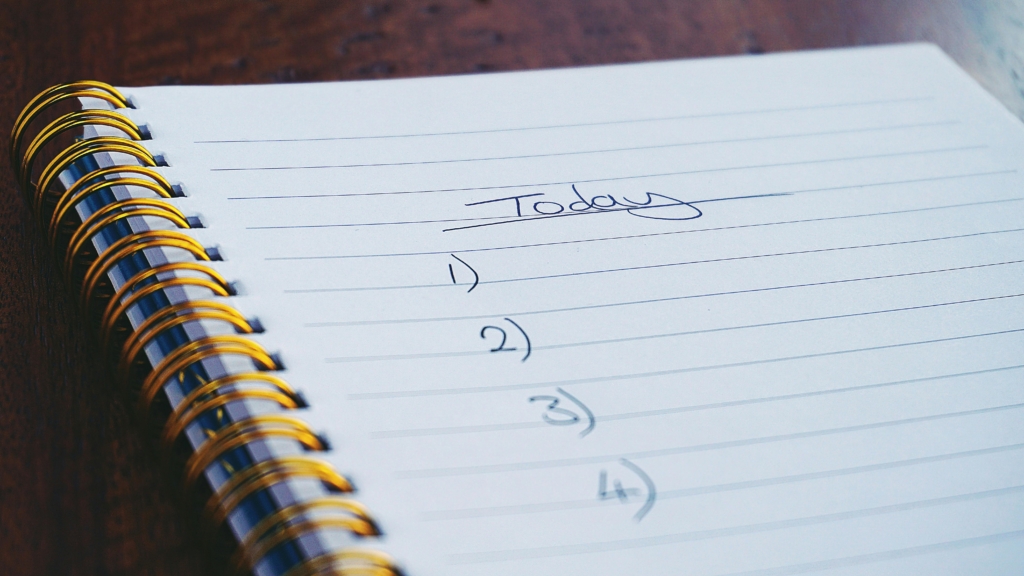As a student entering or continuing high school, particularly after a long and relaxing summer vacation, it’s easy to get caught up in renewed academic responsibilities and forget to take care of yourself. However, as we’ve discussed in blog posts before, mindfulness and self-care are essential practices for maintaining mental health and overall well-being, and it is extremely worthwhile to establish a routine of these sorts of practices during calmer moments so that they can continue to be effective at more stressful times of life. This blog post is designed as a refresher of the various mindfulness and self-care techniques we have discussed in the past, including strategies to avoid negative thoughts and self-talk.
Mindfulness: What is it actually?
Mindfulness is the practice of being fully present in the current moment. It involves paying attention to our thoughts, feelings, and sensations in a neutral manner, as well as focusing on the here and now, rather than obsessing over the past or future.
Mindfulness Techniques & Practices
Below are some examples of mindfulness techniques that are relatively simple and easy to incorporate into daily routines, even on potentially busy days.
- Meditation: Find a quiet space, sit comfortably with your back straight and your feet planted on the floor, and focus on your breaths in and out. The best method is to breathe in through your nose and then push a forceful breath out through your mouth, slowly. When your mind wanders, gently bring your attention back to your breath, counting if necessary. You can even do this sort of practice lying down as you fall asleep.
- Body Scan: This practice is very similar to meditation, and you can in fact do a body scan while meditating. Lie down in a comfortable position and mentally scan your body from head to toe, naming and focusing on each body part one at a time. Notice any areas of tension and breathe into them.
- Mindful Eating: Pay full attention to the experience of eating. Notice the colours, textures, and flavours of your food, eat slowly and savour each bite. This practice not only enhances your enjoyment of food but also improves digestion and prevents overeating.
Self-Care Techniques
Self-care techniques can be different from mindfulness techniques in that they are often centered around particular activities you can do to take care of your physical body, and thus benefit your mind. Practices can be physically rigorous, or calming and soothing, depending on your needs and interests.
- Physical Activity: Regular exercise is vital for physical and mental health, as it releases endorphins that reduce stress and boost your overall mood. Find an activity you enjoy, whether it’s yoga, running, dancing, or simply walking in nature – it doesn’t have to be anything specific or rigid, just however you feel like moving your body in that moment!
- Adequate Sleep: Prioritize getting enough sleep each night, as this is essential for both your bodily and brain health. Create a bedtime routine that relaxes you, such as reading, taking a warm bath, or practicing gentle stretches, and do it everyday if you can.
- Healthy Eating: Nourish your body with a balanced diet, focusing mainly on fruits, vegetables, whole grains, and lean proteins such as chicken, fish and legumes. Stay hydrated with water and limit your intake of processed foods and sugars. Proper nutrition fuels your body and mind, and makes you feel ready to take on any challenges that may arise in your day.
- Social Connections: Cultivate meaningful relationships with friends and family, as well as a dedicated support system of people that you can turn to whenever needed for guidance. Strong social connections are crucial for emotional health!
Strategies to Avoid Negative Self-Talk
Negative self-talk can undermine your self-esteem and mental health, and make it nearly impossible to remain positive and motivated. It’s essential to recognize and challenge these thoughts to cultivate a more healthy mindset, and below are some techniques that can be used to do so.
- Awareness: Pay attention to your inner dialogue, and take notes in a journal or on your phone for about a week in order to pinpoint recurring negative thoughts and the triggers associated with them. Awareness is the first step to change.
- Challenge Negative Thoughts: Question the validity of your negative thoughts in the moment you have them, or when reviewing the notes you took during a dedicated time. Are these thoughts based on facts or merely on assumptions? Start to work on replacing any irrational thoughts with more balanced and realistic ones, even writing down mantras or specific phrases that you can repeat to yourself when negative thoughts creep in.
- Practice Self-Compassion: Treat yourself with the same kindness and understanding you would offer a friend. If you would not be harsh or negative about your friend’s self-perceived imperfections and mistakes, then what is your reason for being negative toward and so hard on yourself?
- Gratitude: Focus on the things you’re grateful for. Keep a gratitude journal and write down three things you’re thankful for each day, either when you first wake up or before bed. Shifting your focus to the positive aspects of your life can reduce negative thinking overall.
Incorporating mindfulness and self-care into your daily routine can significantly enhance your mental health and overall well-being, and it is worthwhile to establish these practices as the new school year begins so as to be able to maintain them during more stressful times. By practicing mindfulness, engaging in self-care activities, and challenging negative self-talk, you can cultivate a healthier and more positive mindset. Remember, taking care of yourself is not a luxury but a necessity, and will only make you more productive and successful in all aspects of your life!
Start Today
After reading this article, sit down and put on an instrumental playlist or a set of soundscapes. Let these noises soothe you and breathe deeply in and out for 1 minute, focusing on the rise and fall of your chest. After this time, take out a sheet of paper or open the Notes app on your phone and make a list of 3 self-care and mindfulness techniques you are going to aim to put into practice this week. Add them to your phone or physical calendar and get started on your journey to mental and physical wellness!







